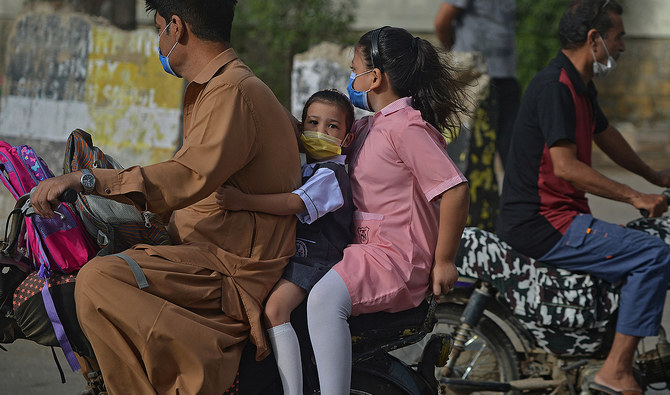ISLAMABAD: The provincial government of Pakistan’s southern Sindh province on Tuesday issued an advisory warning citizens to take precautionary measures after an outbreak of the Nipah (NiV) virus in neighboring India last month killed two people.
India’s Kerala state shut schools, offices, and public transport on September 13 after two people were killed by the contagious NiV. To prevent the further spread of the virus, Indian health authorities tested over 700 people on suspicion that they may have come into contact with persons infected with it.
NiV is a highly contagious zoonotic disease that spreads from animals to humans and in some cases, humans to humans. Pakistan has not reported any cases of the infection so far.
“While there is currently no outbreak of the Nipah virus in Pakistan, it is it is essential to stay informed and take precautions in view of the recent outbreak situation in India to prevent its spread,” an advisory issued by the Directorate General Health Services in Sindh said.
The advisory said fruit bats are “natural reservoirs” of NiV and based on available data in South Asia, almost all NiV outbreaks have occurred in winter to spring seasons (December to May).
The disease can spread through direct contact between humans and infected animals such as bats and pigs or their bodily fluids, it said. It can also spread via direct contact with the bodily fluids of infected animals and close contact with a person infected with NiV or his/her bodily fluids.
“Symptoms may appear from 4 to 14 days,” the advisory said, adding that a person infected with NiV may experience high fever, muscle pain, headache, fatigue, nausea and vomiting, respiratory issues, and seizures.
The advisory warned citizens against traveling to places where there is an outbreak of the disease and urged them to wash hands frequently with soap and water, and avoid meeting infected persons.
“If you or someone you know exhibits symptoms of NiV infection, such as fever, headache, and respiratory issues, seek immediate medical attention,” the advisory said.
“Early diagnosis and treatment are essential.”
The advisory said suspected or confirmed cases of NiV should be isolated and monitored, adding that it is essential for authorities to trace persons who may have potentially come into contact with the infected person.
It also called on authorities to screen passengers at airports to know whether they carry the virus or not.











